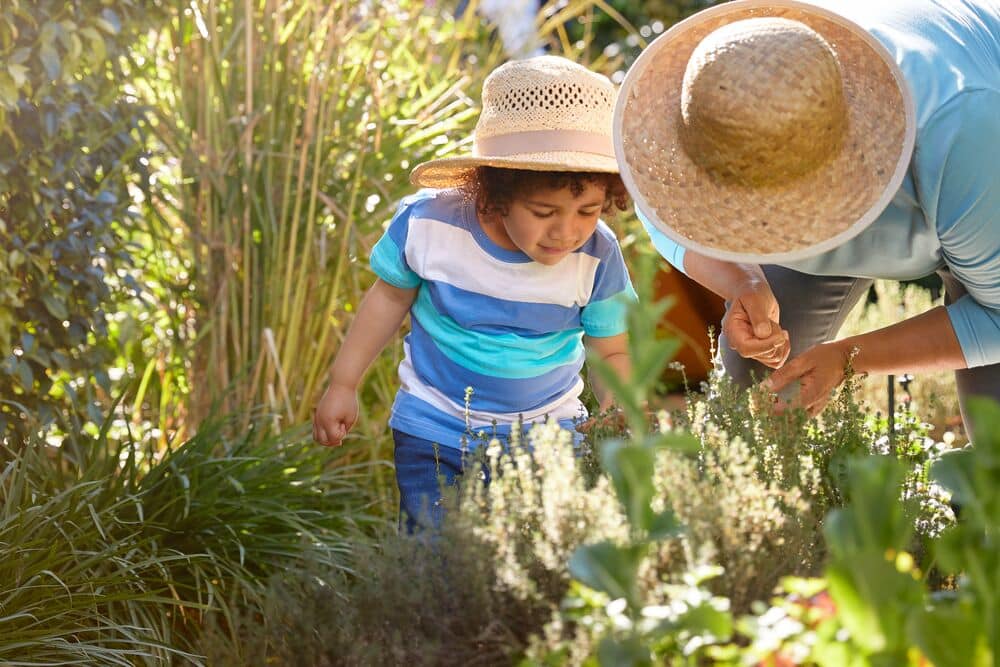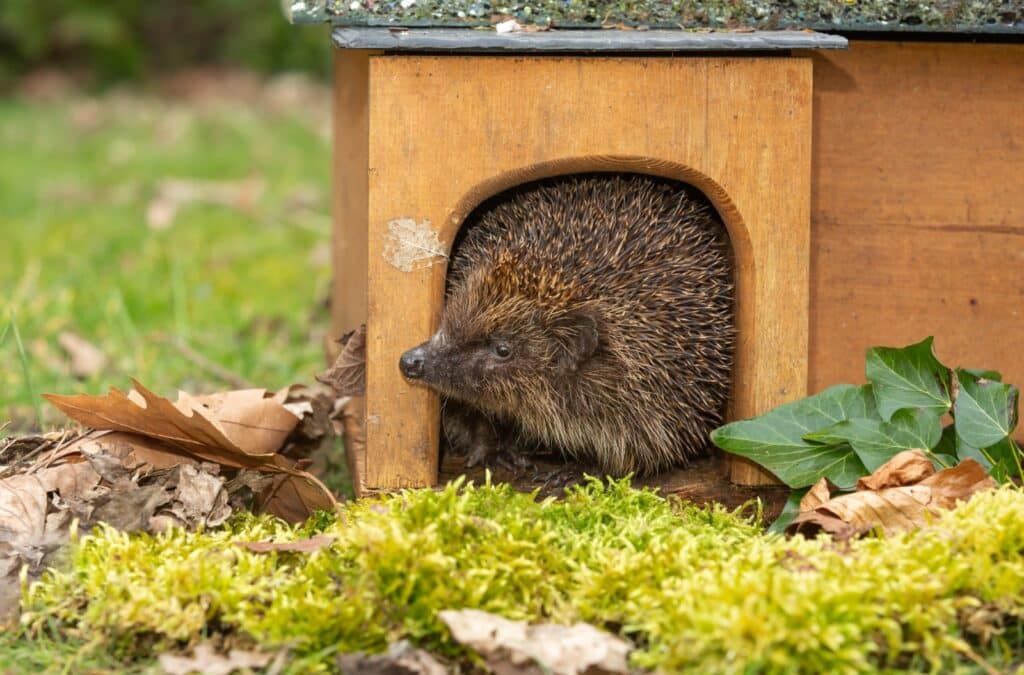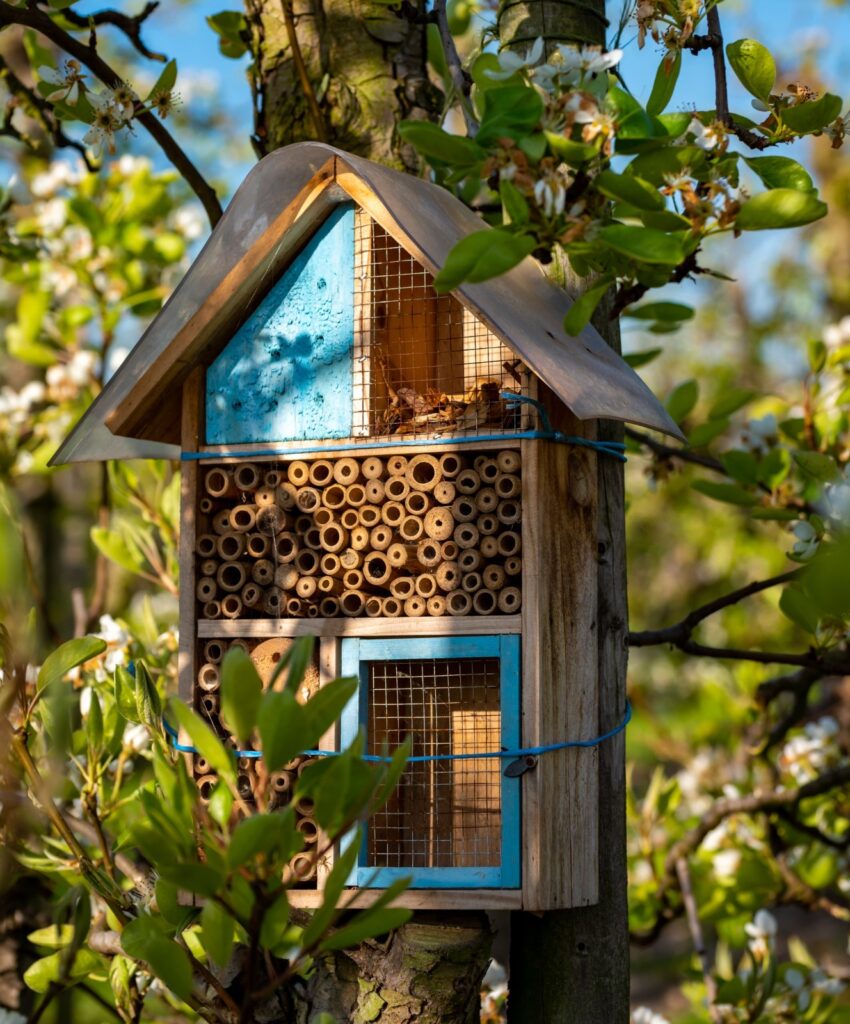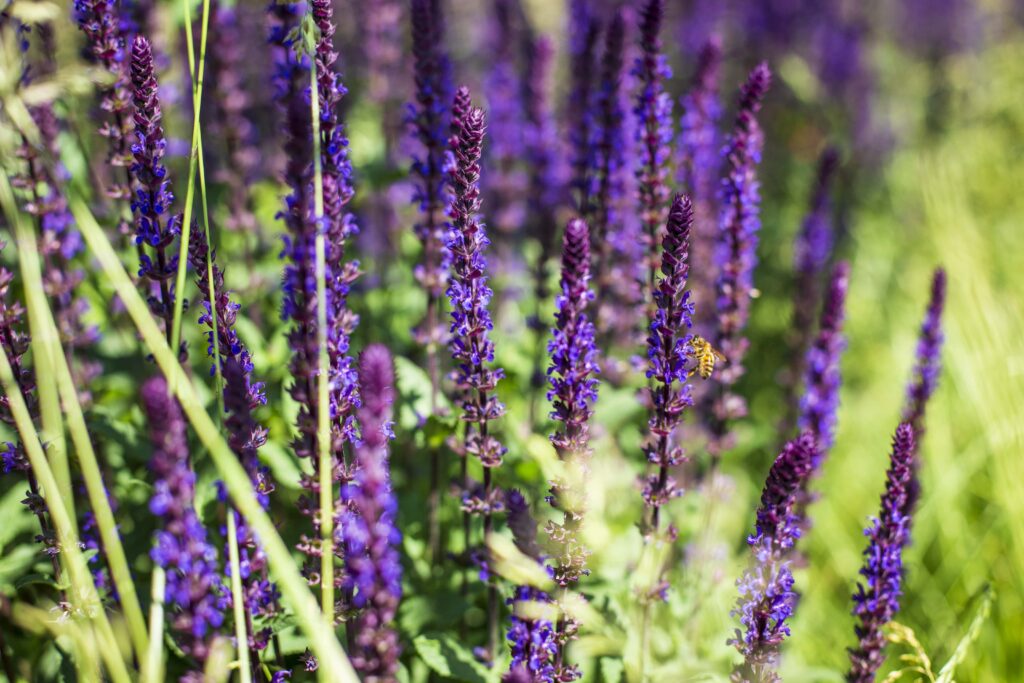
A beautiful, flourishing, and abundant garden in summer is within the reach of all gardeners who know how to take into account the different elements that make up the garden and that ensure its balance. Encouraging biodiversity and respecting the garden’s ecosystems is a guarantee of success, limiting the constraints and maintenance tasks. It is time to change our habits to fully enjoy a beautiful and healthy garden naturally!
Prevent the appearance of pests and diseases
In summer, the heat and humidity favor the development of diseases and the proliferation of pests. Vigilance is required to prevent their appearance.
-Plant observation is important to solve the problem at its source and as soon as possible before it develops. An attentive and reactive gardener will not risk an invasion.
-Cut off and discard the affected parts of the plants. Never leave them on the ground to limit the risk of contamination, nor throw them in the compost to avoid contaminating it.
-Do not water the foliage of plants to limit the spread of cryptogamic diseases (caused by fungi).
-Feed and water the plants well so that they are not deficient or overfed. If they are suffering or growing too much, they will be more fragile.
-In the vegetable and ornamental garden, snails and slugs are attracted by water. Encourage the presence of their natural predators such as hedgehogs, certain birds or chickens if you are lucky enough to have a henhouse. Slugs usually feed on decaying plant material. If they are too numerous, it is a sign of imbalance in the garden. To keep them away from your crops, set aside a spot for various plant debris kept moist in a corner of the garden.
-Plant friendly plants such as carnations and marigold roses that keep many insects away. Use nasturtium to divert aphids from beans or ornamental plants, think of castor oil which attracts pests of solanaceous plants (potatoes, tomatoes, eggplants…) and poisons them.
Encourage useful animals in the garden
Many animals that are often hunted are actually very useful in the garden. Preserving them helps to maintain a good balance between predators and pests that would otherwise swarm the garden.
Pollinating insects, mammals (foxes, shrews, bats, hedgehogs…), auxiliary insects, amphibians, reptiles, birds all have a regulatory function. If they are encouraged, the garden finds its balance and requires much less treatment.

How to encourage the presence of useful animals in the garden?
-In summer, water and mulch the soil of the vegetable garden to preserve the earthworms which otherwise descend into the deep layers. Earthworms are the gardeners of the soil, they aerate the soil. Their galleries improve the penetration of water and nutrients into the soil.
-Create water features, such as a pond, a waterhole, or a simple fountain, to attract many beneficial animals to the garden in a sustainable way.
-Use compound hedges to take advantage of staggered flowering and provide shelter for pollinating insects, birds and small mammals, especially if the shrubs produce berries.
-Install insect hotels and nesting boxes for birds, bats and hedgehogs.
-Leave fallow spaces and create dry stone walls that attract discreet and useful fauna.
-If necessary, introduce auxiliary insects (lacewings, ladybugs, parasitoid wasps). You can find them in some garden centres, but also on many specialised websites. Be careful, the releases must be made at the beginning of the infestation.
-Scrupulously respect the rules for using biocontrol products to avoid harming the fauna.

Plants to attract beneficials
A space left uncultivated, even a small one, will allow biodiversity to grow naturally and to see plants that attract many gardeners’ helpers. Plants of the Apiaceae family (Umbelliferae) such as wild carrots, attract pollinating insects, but also ladybugs, parasitic wasps, hoverflies and lacewings. All these insects help to fight against aphids, thrips, mites, caterpillars and larvae of all kinds.
Nettles are very valuable because they are egg-laying areas for butterflies and attract ladybugs or cantharids.
Conclusion: An environment that is respected by the gardener will give back a hundredfold! Flowers in abundance, fruits and healthy vegetables will be obtained thanks to the active contribution of all the auxiliary animals of the gardener and by taking into account the good associations of plants. This natural gardening that favours biodiversity ensures healthier plants that are better able to manage summer weather conditions and possible absences due to vacations!
